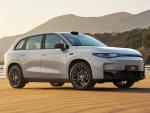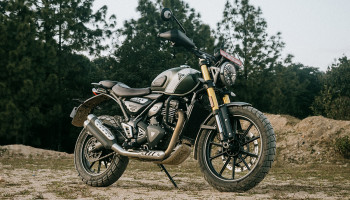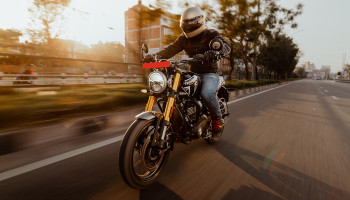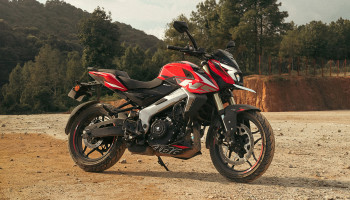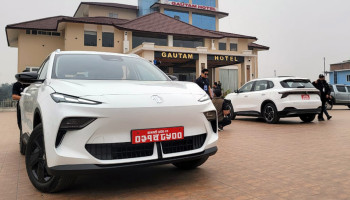Our lives today, to put it bluntly, are rather mundane. We wake up, go to work, and go to bed, with all the routine activities in between, amidst the hustle and chaos of the quintessential city life. Yet, amidst these overly occupied times, there are moments when we disengage from reality. They come in the form of a day, a weekend, a week, or even a fortnight—a cluster of days when we can escape the daily grind, and spend time with ourselves, our family, and friends.
And during such moments, one of the most popular things anyone with a set of wheels can do is to embark on a road trip. People love the freedom of hitting the road. They enjoy packing their bags and leaving their monotonous work lives behind, even if only temporarily, to experience the wind in their hair or on their earlobes for those who are follically challenged.
Road trips are among the best ways to escape stress and create memories that will last a lifetime. That's why when we, at Nepal Drives, received an offer for a work-related road trip, we couldn't resist. However, it wasn't just any other road trip; it was an electric vehicle (EV) road trip. We would be driving the Tata Nexon EV Max. Having never been on a proper electric road trip before, we set out with a mix of excitement and apprehension, eager to discover if recharging instead of refueling would still allow us to have a memorable journey.
Our journey started a day prior to when we received the Nexon EV Max (referred to as Max hereafter) to get everything ready for our trip. We took the Max, rehearsed our shots, and went on a shopping drive to grab the necessary supplies for the trip. A couple of things that we immediately noticed is how smooth the Max is to drive. More on that later.
Upon returning with the Max to one of our team members’ homes we lined up the Max to charge for the big day. But alas, the power socket present in the garage wall didn’t charge the Max. After a few calls and YouTube videos, we found out that as a safety measure, the Nexon EV Max doesn’t take charge of power sockets that don’t have an “earthing” installed which is the common situation for most of the old houses.
The next morning, we picked up everyone and made a short stop at Tata’s Thapathali showroom where we charged the Max up to 80% and our journey was on! Disclaimer: Any EV will usually claim a certain km range on a full charge.
Remember that those claimed figures are always under a closed environment and monitored conditions. If you want to reach that figure you will have to drive your EV so gently and so leisurely that it spoils all the essence of a good drive, not to mention annoy the traffic behind you. That is why we drove the Max…. Normally. Sticking under the 30s and 20s during traffic conditions and gunning immediately to 50s on open roads and overtaking wherever possible.
Back to the road! Since this was our first EV road trip we had made the effort to plan it out a little. Yes, the Max comes with enough range but still, the anxiety of running out of charge was knocking at the back of our heads. Squeezing through the traffic of Kalanki and Thankot and rolling over the bumpy tarmacs of Naubise Nagdhunga, which is reminiscent of a teenager with an acne issue, we drove on. We are happy to report that the tunnel project is also being carried out at full speed.
The roads opened up a little after that and we picked up speed. Our preferred mode of driving was Eco mode, yes, the Eco mode packs enough punch even for highway driving. Our preferred mode of regen was Level 2. As the downhill revealed itself we drove the Max like we would drive any other fuel car, overtaking wherever possible and flooring it when the roads were empty. The only thing different on this drive was the use of regen.
Rather than mashing the brake pedal during every turn we, or our inner expert driver, let regen take over and timed it so impeccably that the Max coasted calmly into and out of the corner while on active regen. The result had us properly impressed. When we reached Sipradi’s DC fast charging station located at Sipradi’s service facility at Dharke and checked the gauge we found that the Max had covered a distance of 37 km by consuming only 6% battery. That was 6 km for every percent of battery!!! Most of it was due to downhill regen but still an amazing figure.
Upon talking to the Sipradi staff at Dharke we didn’t feel the need to charge the Max there. Feeling confident we pulled up Tata’s EZ charge app on our phone and decided to go to the next DC charging station on the way. After Dharke the continuous downhill roads changed into a mix of declines, inclines, and plains.
Setting music on blast and the air conditioning on the cooler side we carried on our way to Chumlingtar. Another DC fast charger was located inside the premises of Siddhartha Riverside Resort at Chumlingtar. We looked at the gauge, we had covered 66 km whilst consuming 21% battery equating to 3 km for every percent of battery. The Max was now at 53% battery and we were hungry at this point, so we figured that we should charge the Max with electricity and charge ourselves with the good old “मासु-भात”.
After filling ourselves to the brim with good food we went to check on the Max, seeing the battery at 93% we decided to carry on to our next stop, Chitwan. This part of the journey was rather slow, we had to take videos and photos along the way so we had to do countless reruns and takes. We left the Siddhartha Riverside Resort at 3:50 pm and arrived at Tata’s Bharatpur DC fast charging station 50 km away at 7:20 pm but we had driven an extra 85 km for shooting purposes making our total distance of 135 km that had consumed 70% battery which equated to 1.2 km for every battery percent.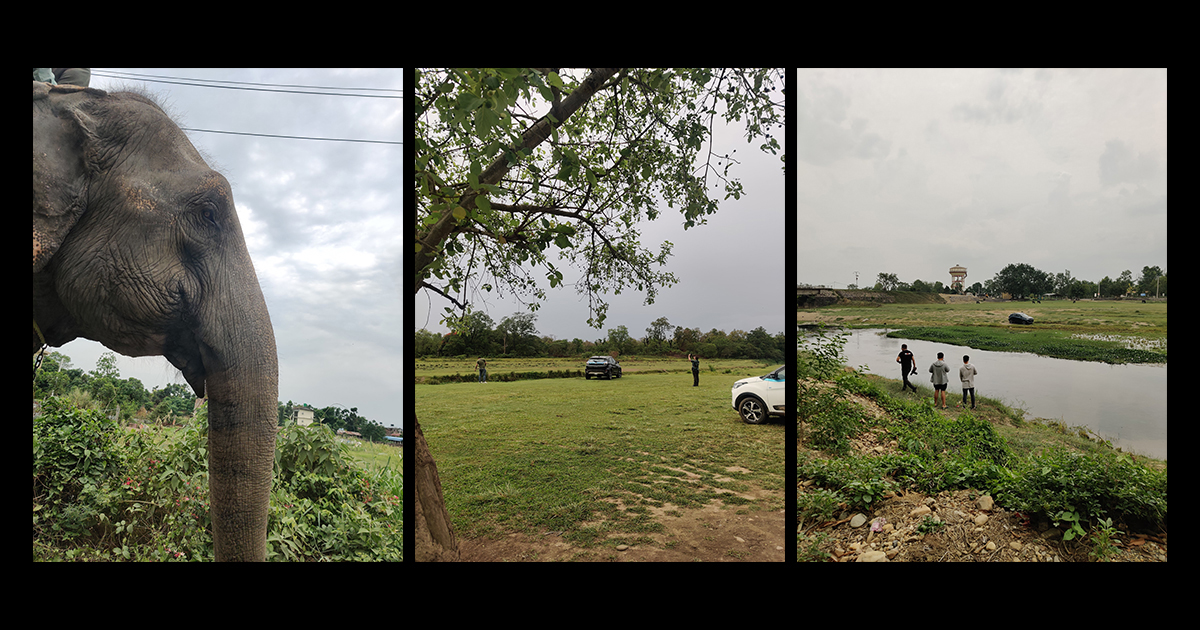
We stayed for a couple of days and shot around different parts of Chitwan with the Bharatpur DC fast charging station being our go-to station every time. During our time with the Max, we came to love a lot of things. The stand-out feature in the Max is by far its drivability. The Nexon EV Max builds upon an already smooth Nexon EV and takes it up ever so slightly. The other stand-out feature is the cushy suspension, whether it be bumps or potholes, the Max simply glides over without shocking the passengers. The ride is supple and comfortable both at the front and the back making the Max one of the best cars for longer journeys.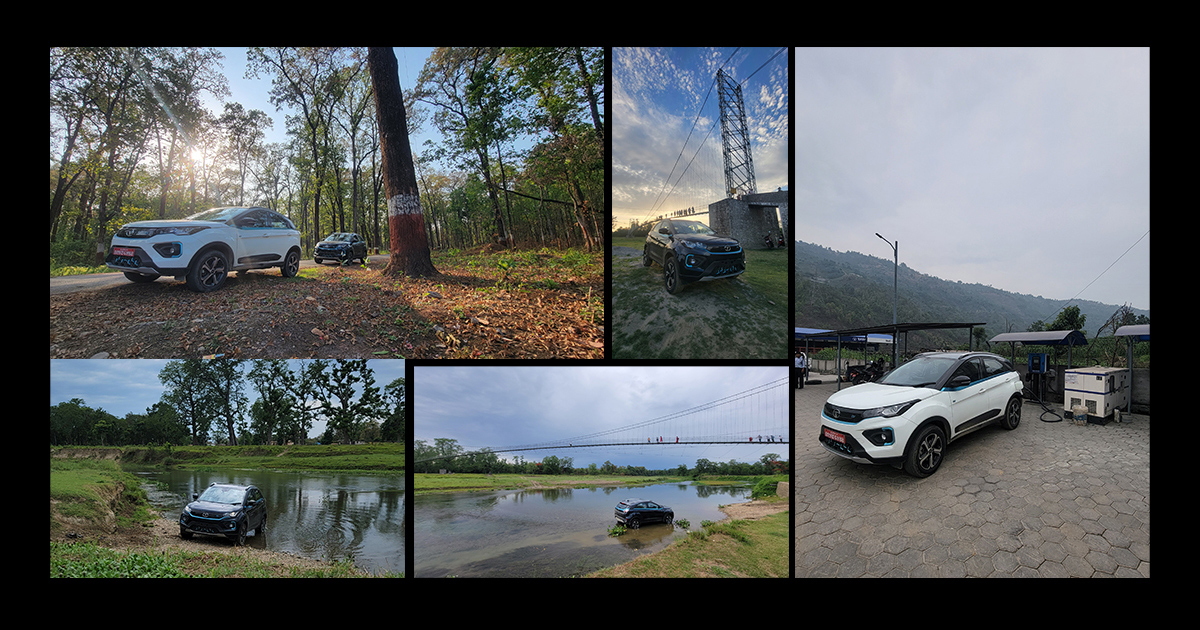
Apart from the buttery drivability and cushy suspension the Max also comes with equally strong brakes for stopping duties and gives you Tata’s 5-Star GNCAP safety rating that will put your mind more at ease during road trips.
A couple of days later, we quenched our thirst for Chitwan and gathered enough footage for our work. It was time to leave, but before leaving we had one final lunch here while the Max was on charge at the Bharatpur DC fast charger. We left the Bharatpur DC fast charging station with a full 100% battery.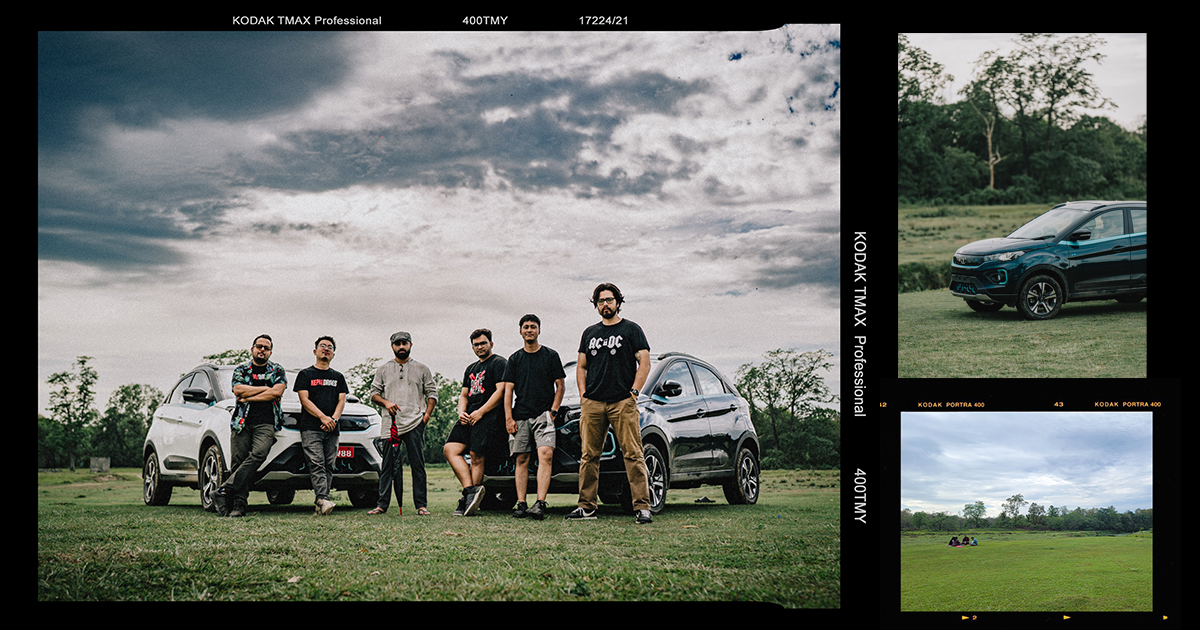
With all the footage gathered and no more work left to do we were now in that “rush home” mode. Although in a hurry we drove with utmost caution because most of the road trip accidents occur while returning.
After long winding roads and a savory “मलेखु को माछा” break, we arrived at Sipradi’s DC fast charging station at Dharke with 48% battery remaining. Our speedy rushed driving made the Max consume 52% of the battery to cover a distance of 122 km equating to 2.3 km for every percent of battery.
It was 8:15 pm when we got there, the Max was showing a 48% charge which was more than enough to get to our homes in Kathmandu. But the road to home from Dharke was all uphill with lots of traffic and that’s when the range anxiety got the best of us and we decided to charge the Max before attempting the final stretch.
We charged the Max for 45 minutes and reached 77% charge. Range anxiety had left the room and we were on our home run. Blazing through the inclines and leaving the traffic behind we entered Kathmandu then dropped 3 guys to their houses we finally left the Max at Tata’s showroom at Thapathali with 45% battery left.
Our amazing road trip with the Nexon EV Max had come to an end and we walked away cherishing every moment. This road trip was different however because, unlike any other road trips in the past, we actually had to plan for this one, where to stop, where to eat, where to stay, where to wander, and especially where to NOT wander.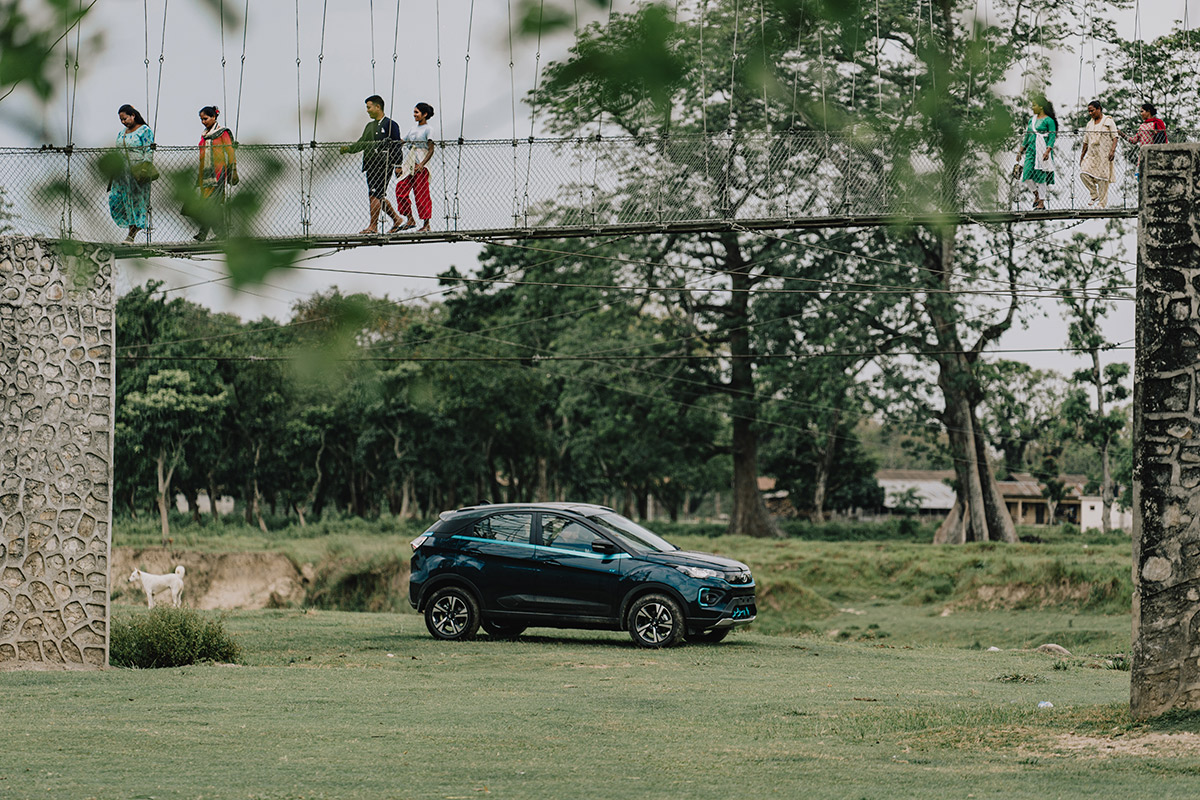
As amazing as EV technology is, it is still in a growing stage and there will be inconveniences should you want to take your EV on a long journey. We think now would be a good time to reiterate the fact that any EV is only as good as its charging network. If you use your EV only inside a city then it is fine but the moment you want to travel farther you have to plan things out accordingly.
Tata by far has the best charging network currently, but even then you must plan your journey carefully should you decide to travel long distances. Tata has done an excellent job setting up its charging network but we will say it outright: We need more chargers!!! At least two to three in every charging station that is currently in operation.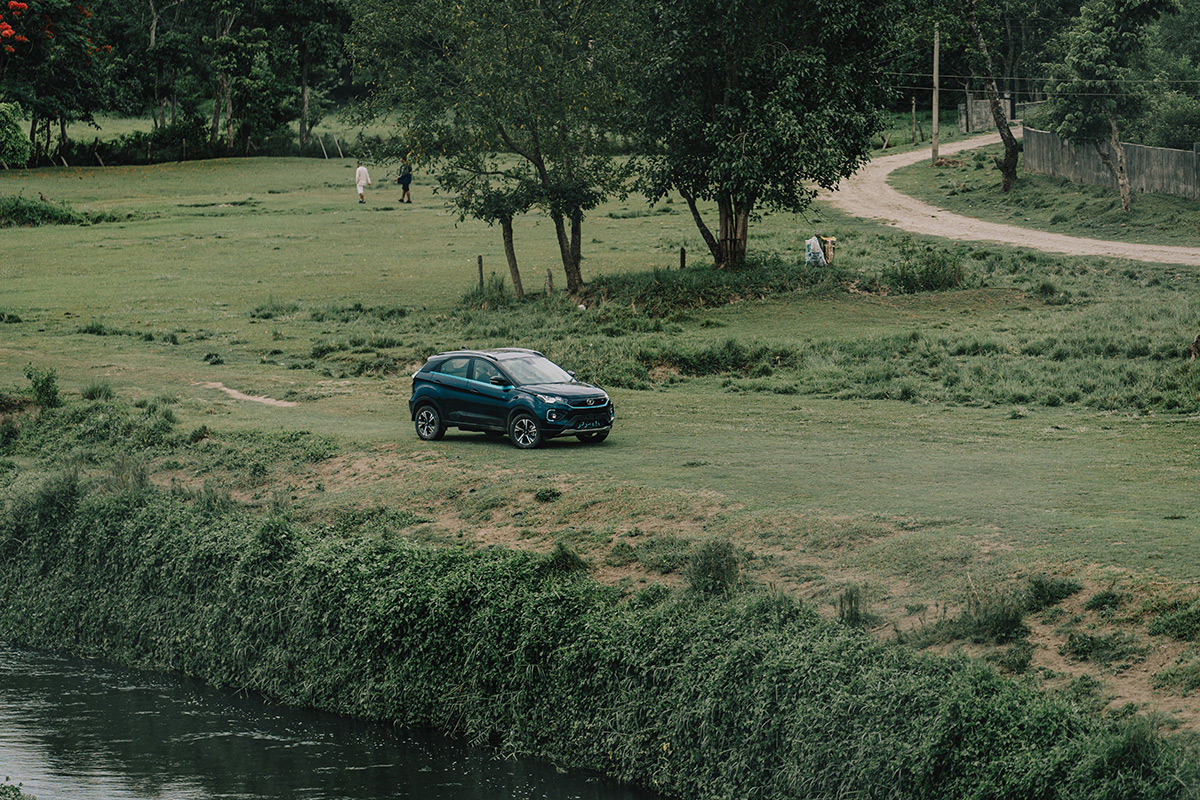
Having sold close to 2,000 EVs all the charging stations we visited already had a queue of at least 2 cars when we got there. With a station that can charge only one vehicle at a time we had no option but to wait. Then came the poor seating/ waiting arrangements. Yes, you could stay in the car but for how long?? We grew restless after 5 minutes inside the car and had to get out. A shed with benches where people can sit protected from the heat and the rain would be a worthwhile addition to these stations.
We also think that Tata needs to launch a campaign to teach its customers some charging etiquette. Every charging station we went to had a queue of at least 2 cars on a good time and up to 4 cars when we weren’t lucky. We didn’t mind the queue because it is a budding technology, all the fuel stations weren’t built in a couple of years, and the fuel network took decades.
What did make us concerned, however, was the people’s attitude during these queues. A fast charger will take anywhere from 30 minutes to an hour to charge a Nexon. Many people don’t seem to have the patience to wait that long. The Nexon owners we faced, for lack of a nicer word, felt entitled. They wanted to charge first even though they were at the end of the line.
We had a couple of instances of our own when one couple with kids told us to remove our car from charging so that they could charge theirs for “only 30 minutes” and got almost hostile when we declined their request. Another instance was one where a driver pleaded with us to charge his car first to 100% because his owner would yell at him if he came back from his dinner to a car that was still waiting in line.
If it was a fuel line, then we would have let these people fill up before us any day, but this is different, this is significantly longer. Keeping this still lack of a charging structure and “नेपालीको तातो रगत” in mind we believe Tata needs to educate its customers to plan appropriately and develop a good charging culture before something unfortunate happens at one of these charging stations. We also want to request any EV owners reading this, “Relax, be calm my friend, your turn will come.”
Lastly, if you happen to own a Tata Nexon EV Max and want to go on a road trip, you don’t need to worry at all. Pack your bags, take your friends and family, plan a little, and just go!!! And don’t forget to put on your seatbelts. Safe journey!












